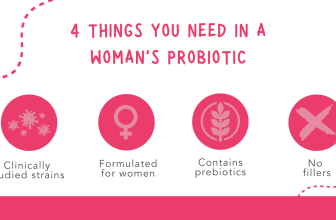
Welcoming a new baby is a joyous and transformative experience for parents. The postpartum period, often referred to as the “fourth trimester,” is a time of adjustment and immense change for new parents. From making a feeding plan for baby to accepting support from family and friends, understanding how to prepare for this transition can make a significant difference in a new family’s overall well-being.
A well-thought-out post-birth plan helps new parents anticipate the physical, emotional and logistical changes that come with bringing a newborn home. Eleanor Byrum, FNP, CLC, a family medicine nurse practitioner and lactation specialist at OhioHealth, emphasizes the value of preparing in advance. “I think we all almost immediately think about what we need to pack in our hospital bag or have ready at home,” she explains. “But the most important thing is to plan for how to lighten your load once you’re back home.”
Some of the most important elements of a post-birth plan include:
- Setting up a support network: Identifying friends, family and other resources that can assist with meals, chores and errands.
- Planning for meals and household tasks: Having meals prepared in advance or setting up a meal train can help reduce stress.
- Establishing boundaries for visitors: Determining who will visit, when and for how long can help ensure a smooth transition.
- Choosing a pediatrician: Ideally, new parents should have a pediatrician lined up before birth to ensure continuity of care.
- Prioritize communication: Try not to focus on everyone else. Think about who your main support system is and maintain constant communication with them. Devise a strategy on how you’ll check in on each other emotionally post-birth.
Navigating postpartum physical and emotional changes
Postpartum recovery looks different for every parent, and the emotional and physical well-being of both the birthing parent and any supporting caregivers are equally critical. For birthing parents, recovery can include managing fatigue, physical healing and potential challenges with feeding baby. Prioritizing rest, hydration and nutrition can aid in the healing process.
“As a mom myself, I realize that I did a lot of the heavy lifting for nine months carrying the baby and having my body change,” says Byrum. “But as a non-birthing parent, they tend to have a shock at the delivery because their body didn’t go through physical change. They haven’t physically experienced the pregnancy, so the emotional connection and associated challenges often set in after birth.”
Byrum stresses that the non-birthing parent also has a high risk of developing postpartum depression and anxiety. It’s important to understand that postpartum mood disorders, such as anxiety and depression, can impact both birthing and non-birthing parents. Byrum advises that persistent sadness, detachment or excessive worry should not be ignored.
“Postpartum anxiety can be sneaky,” says Byrum. “It often starts as normal worry, but then turns into intrusive thoughts, constant surveillance of the baby or fear of letting others care for the baby.”
She encourages partners to watch for warning signs and communicate openly. If parents are questioning whether they need help or are feeling emotionally dysregulated at any point, that’s usually a sign to reach out to a healthcare provider.
Taking care of oneself is just as important as taking care of a newborn. You can’t pour from an empty cup. “Set non-negotiable self-care priorities with your partner — whether it’s taking a shower every morning, eating three meals a day or getting outside for fresh air,” Byrum says.
She also emphasizes the importance of sleep, even though it can be challenging with a newborn. “At some point, parents need to transition from being involved in every single task to a tap-in, tap-out approach, where one parent fully takes over for a while so the other can rest,” she says.
Newborn care, bonding and the role of support systems
Bonding with a newborn is essential for both parents. “There’s no such thing as holding a newborn too much,” Byrum reassures. “They were with you 24/7 in the womb and being close to their parents helps them feel secure.”
For parents struggling with baby-feeding, whether breastfeeding or formula feeding, it’s important to seek support when needed. Utilizing resources like lactation consultants and postpartum care centers can make a huge difference.
Having a strong support system can significantly impact a parent’s postpartum experience. Recognizing that you’ll need help and identifying what types of assistance you’re comfortable accepting is key.
Byrum shares a personal anecdote: “After my fifth child, my best friend came over and cleaned my house. It was one of the best gifts I received because it allowed me to focus on bonding with my baby.”
Partners, family members, and friends can provide support by:
- Helping with household tasks so parents can focus on their newborn.
- Checking in regularly to offer emotional support.
- Encouraging parents to take breaks and rest when needed.
Setting clear expectations with visitors can also prevent unnecessary stress. “Some people love having company right away, while others need time to adjust,” Byrum says. “Having a plan in place for visitors can help set boundaries that support parents’ recovery.” Supporting new parents involves more than just baby gifts and well-wishes—it’s about creating an environment that allows them to thrive.
From having a solid post-birth plan to ensuring emotional and physical well-being, small but meaningful actions can make a world of difference in the fourth trimester. By preparing in advance, maintaining open communication, and building a strong support network, new parents can navigate the postpartum period with confidence and care.
Your journey through the fourth trimester deserves expert care and support. At OhioHealth’s Fourth Trimester Clinic, we’re here to help you navigate postpartum recovery with personalized care, lactation support, and resources tailored to your needs.


Continue the conversation: In this episode of The Wellness Conversation, an OhioHealth podcast, we explore how to truly support moms during this critical post-delivery time.






